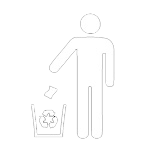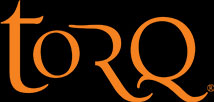Nieman, D.C. and Wentz, L.M., 2019. The compelling link between physical activity and the body’s defence system. Journal of Sport and Health Science, 8(3), pp201-217.
Pedersen, B.K., Rohde, T. and Ostrowski, K., 1998. Recovery of the immune system after exercise. Acta Physiologica Scandinavica, 162(3), pp.325-332.
Urashima, M., Segawa, T., Okazaki, M., Kurihara, M., Wada, Y. and Ida, H., 2010. Randomized trial of vitamin D supplementation to prevent seasonal influenza A in schoolchildren. Am J Clin Nutr, May;91(5):1255-60. doi: 10.3945/ajcn.2009.29094. Epub 2010 Mar 10.
Shankar, A.H. and Prasad, A.S., 1998. Zinc and immune function: the biological basis of altered resistance to infection. The American journal of clinical nutrition, 68(2), pp.447S-463S.
Rink, L. and Haase, H., 2007. Zinc homeostasis and immunity. Trends in immunology, 28(1), pp.1-4.
Gleeson, M. and Bishop, N.C., 2000. Modification of immune responses to exercise by carbohydrate, glutamine and anti‐oxidant supplements. Immunology and Cell Biology, 78(5), pp.554-561.
Cupps, T.R. and Fauci, A.S., 1982. Corticosteroid‐mediated immunoregulation in man. Immunological reviews, 65(1), pp.133-155.
Burke, E.R., 2002. Serious Cycling. Human Kinetics. pp.154-155.
De Tullio, M. C., 2010. The Mystery of Vitamin C. Department of Plant Biology and Pathology, University of Bari: Nature Education 3(9):48
Pham-Huy, L.A., He, H. and Pham-Huy, C., 2008. Free radicals, antioxidants in disease and health. International journal of biomedical science: IJBS, 4(2), p.89.
Fitzgerald, L., 1988. Exercise and the immune system. Immunology today, 9(11), pp.337-339.
Carr, A.C. and Maggini, S., 2017. Vitamin C and immune function. Nutrients, 9(11), p.1211.
Hickey, S. and Roberts, H., 2005. Misleading Information on the Properties of Vitamin C. PLoS Med 2(9): e307.
Richard Z. Cheng, R.Z. 2020. Preliminary Report of Chinese High Dose Vitamin C for Covid-19 Treatment Studies. Orthomolecular Medicine News Service, August 16, 2020. (unpublished)
Legault, Z., Bagnall, N. and Kimmerly, D.S., 2015. The Influence of Oral L-Glutamine Supplementation on Muscle Strength Recovery and Soreness Following Unilateral Knee Extension Eccentric Exercise. Int J Sport Nutr Exerc Metab: Oct;25(5):417-26. doi: 10.1123/ijsnem.2014-0209. Epub 2015 Mar 26.
Calder, P.C., Yaqoob, P., 1999. Glutamine and the immune system. Amino Acids: 17(3):227-41.
Ren, W., Li, Y., Yu, X., Luo ,W., Liu, G., Shao, H. and Yin, Y. 2013. Glutamine modifies immune responses of mice infected with porcine circovirus type 2. Br J Nutr: Sep 28;110(6):1053-60. doi: 10.1017/S0007114512006101. Epub 2013 Jan 28.
Gleeson, M. 2008. Dosing and Efficacy of Glutamine Supplementation in Human Exercise and Sport Training. The Journal of Nutrition: Volume 138, Issue 10, pp. 2045S–2049S.
Schoop, R., Klein, P., Suter, A. and Johnston, S.L., 2006. Echinacea in the prevention of induced rhinovirus colds: a meta-analysis. Clinical Therapeutics, 28(2), pp.174-183.
David, S. and Cunningham, R., 2019. Echinacea for the prevention and treatment of upper respiratory tract infections: A systematic review and meta-analysis. Complementary therapies in medicine, 44, pp.18-26.
Hall, H., Fahlman, M.M. and Engels, H.J., 2007. Echinacea purpurea and mucosal immunity. International journal of sports medicine, 28(09), pp.792-797.
Barrett, B., 2003. Medicinal properties of Echinacea: a critical review. Phytomedicine, 10(1), pp.66-86.
Caruso, T.J. and Gwaltney Jr, J.M., 2005. Treatment of the common cold with echinacea: a structured review. Clinical Infectious Diseases, 40(6), pp.807-810.
Shah, S.A., Sander, S., White, C.M., Rinaldi, M. and Coleman, C.I., 2007. Evaluation of echinacea for the prevention and treatment of the common cold: a meta-analysis. The Lancet infectious diseases, 7(7), pp.473-480.
Campbell, J.P. and Turner, E.T., 2018. Debunking the Myth of Exercise-Induced Immune Suppression: Redefining the Impact of Exercise on Immunological Health Across the Lifespan. Review Article, Department for Health, University of Bath, Bath, United Kingdom.





